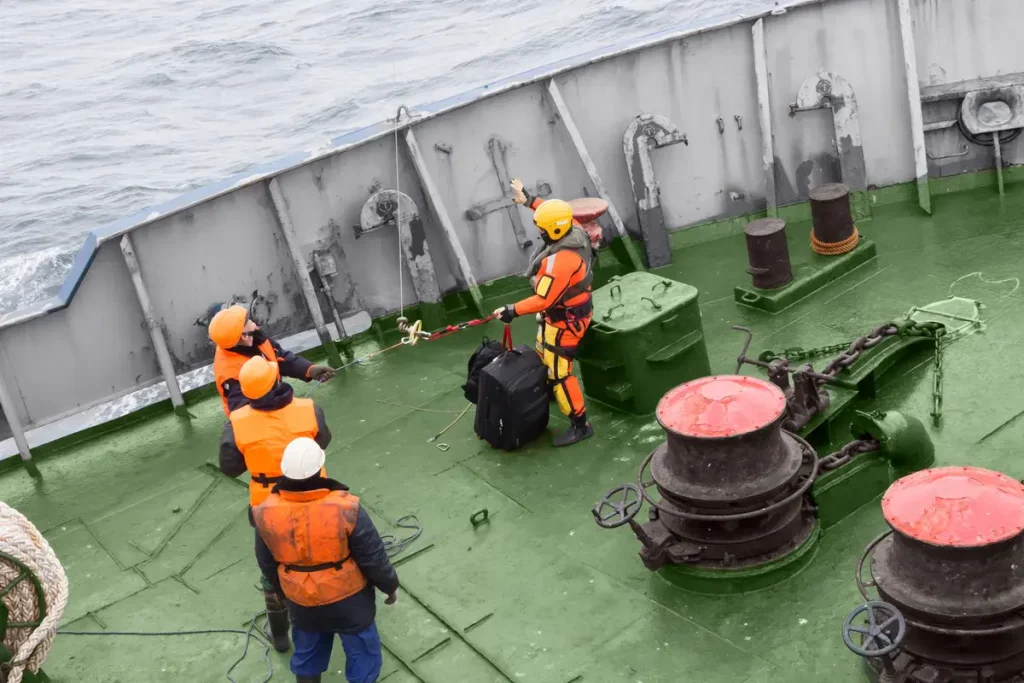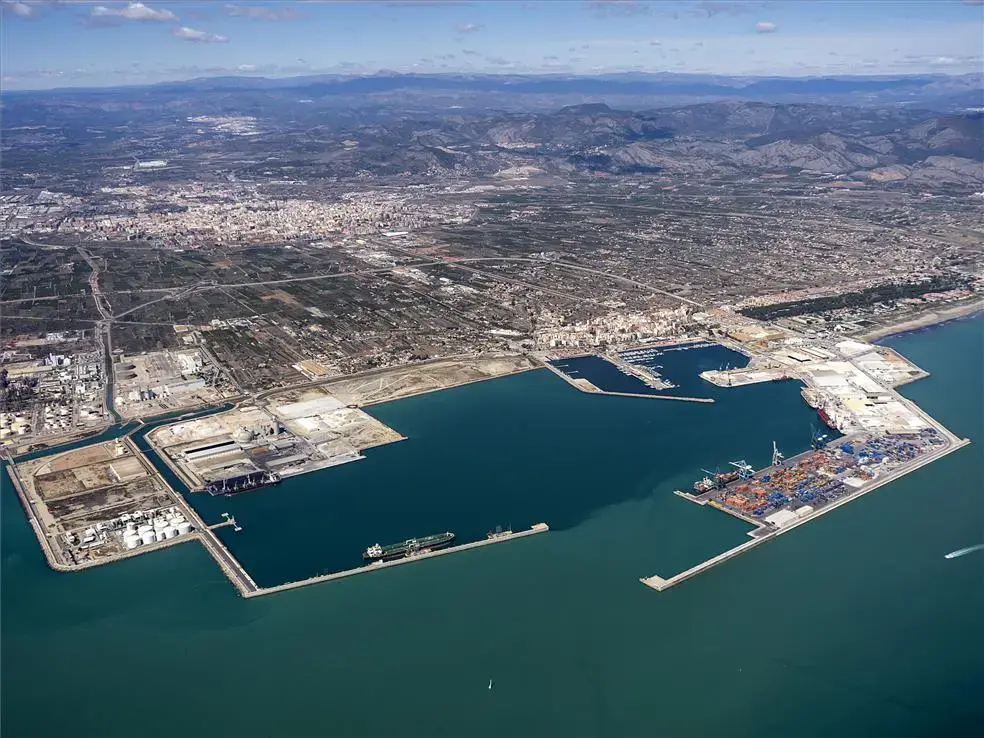Efficient crew change management is one of the critical operational challenges in maritime logistics.
At Ibérica Marítima we understand the complexities and nuances involved. This guide aims to provide clear, actionable insights into the best practices for conducting seamless, compliant, and human-centered crew changes.
What is a crew change and why does it matter?
A crew change refers to replacing one set of seafarers onboard with another to ensure the continuous safe operation of vessels. Crew changes are not merely routine operations, they significantly affect operational performance, crew welfare, vessel safety, and regulatory compliance.
Efficient crew changes help avoid crew fatigue, improve onboard safety, maintain morale, and prevent costly delays. A poorly executed crew change can compromise vessel schedules, create legal and compliance issues, and negatively impact a ship’s operational reliability, potentially damaging client relationships.
Common challenges in crew change operations
Crew changes can present significant challenges due to their operational complexity and the variety of stakeholders involved:
Coordination among multiple stakeholders
Effective crew changes depend on precise coordination between vessel operators, shipowners, crewing agencies, customs authorities, immigration officials, port authorities, and local service providers. Any breakdown in communication or misunderstanding among these parties can result in delays, increased operational costs, and disruptions to vessel schedules.
Complex local and international regulations
Navigating local immigration procedures and international maritime regulations is complex. Visa arrangements—particularly the Visa On Arrival (VOA)—are one of the major concerns. VOAs, although seemingly straightforward, often involve intricate local requirements and time-sensitive processing that must be carefully managed to avoid crew detention or refused entry at ports.
Cost and time pressures
Shipping operators consistently face time and cost pressures. Every delay or error during crew changes can escalate into significant financial losses, highlighting the importance of thorough planning, accurate information, and timely execution.

Human impact and crew welfare
Crew members’ wellbeing is fundamental. Extended delays in crew rotation negatively affect seafarers’ mental and physical health, reduce productivity, and risk safety onboard. Maintaining a proactive stance on crew welfare fosters better working conditions and operational efficiency.
Legal risks of delays and mistakes
Compliance issues, such as incomplete documentation or visa errors, expose companies to legal and financial risks. Non-compliance with maritime regulations can result in fines, vessel detentions, or other costly consequences.
Step-by-step process to manage a crew change
Ibérica Marítima recommends a structured, phased approach to ensure seamless crew changes. Below is a concise, easy-to-follow summary table outlining the key steps for successful crew changes:
| Timing | Key Actions | Important Considerations |
| 10–14 days before arrival | Strategic preparation: visas, travel arrangements, document checks | Engage trusted local agents; prepare Visa On Arrival (VOA) if needed; verify port-specific regulations |
| 48 hours out | Final confirmations: health certifications, schedules, logistics | Double-check visa approvals, health documents, port entry permits |
| Day of operation | Onsite coordination: manage crew handover | Ensure onsite presence or trusted agent; real-time coordination with authorities |
| Post-change | Documentation and closure | Maintain accurate records; address any outstanding compliance issues |
Required documents and legal compliance
Ensuring full compliance with documentation requirements is essential. Missing or incomplete documents often lead to costly delays.
Visas, passports, and travel documents
Crew embarking on vessels typically require specialized visas, such as the Schengen Visa for European ports, or Visa On Arrival (VOA). Each country’s requirements differ significantly. Ibérica Marítima assists by meticulously managing documentation, ensuring smooth entries without legal setbacks.
Health and medical certificates
Proper health documentation has become increasingly critical. Medical and vaccination certificates must align with international maritime and port-specific health regulations. Regularly updating these protocols helps avoid costly disruptions or crew refusals at ports.

Port entry permits and immigration forms
Preparation and verification of port entry permits and immigration documentation in advance help prevent unnecessary administrative delays. Engage local expertise to ensure compliance with complex local requirements.
Emerging trends in crew change logistics
The maritime industry is evolving rapidly, influenced by technological advancements and global events. Understanding emerging trends helps ensure proactive, future-proof crew change management:
Digital crew management platforms
Adopting digital platforms streamlines communication, documentation, compliance management, and real-time monitoring. Digitalization reduces human errors, improves transparency, and facilitates rapid responses to unexpected operational challenges.
Stricter medical screening protocols
Global health crises have significantly tightened medical screening protocols. Increasingly strict requirements necessitate more careful planning, accurate documentation, and enhanced communication with crew and medical providers.
Country and port-specific entry restrictions
Entry regulations vary greatly from port to port and change frequently. Regularly updating procedures to reflect the latest regulations helps avoid operational disruptions. Reliable local agents are indispensable in managing these variations effectively.
Best practices to improve crew change efficiency
Adopting these best practices helps ensure operational excellence and crew wellbeing:
- Choose the right port for crew change: Depending on the vessel’s schedule and specific needs, selecting one port over another can significantly reduce costs and optimize time. At Ibérica Marítima, we support our clients in assessing the best port options, balancing efficiency and cost-effectiveness.
- Plan for operational uncertainty: Always build contingencies into planning, especially around visas, immigration, and health documentation. Anticipating potential disruptions allows flexible and responsive adjustments.
- Leverage technology and automation: Automating routine documentation processes and integrating crew management platforms enhance accuracy, efficiency, and operational transparency, freeing personnel to handle complex issues proactively.
- Work with reliable local agents: Partnering with experienced, trusted local agents, like Ibérica Marítima, provides invaluable local insight, smoother operations, faster responses to issues, and ensures compliance with local regulatory nuances.
- Maintain transparent crew communication: Transparent and consistent communication with crew members reduces uncertainty, builds trust, improves morale, and ensures smoother crew change operations.
Ensuring safe, compliant, and human-centered crew changes
At Ibérica Marítima, we understand that successful crew changes require careful planning, thorough documentation, and proactive management of regulatory complexities. With over 60 years of experience as shipping agents specialized in petrochemical vessels, we leverage our expertise and global network to ensure crew changes happen seamlessly, reliably, and with the highest standards of crew welfare in mind.
Our hands-on approach, advanced digital tools, and deep local knowledge mean we can anticipate and solve challenges before they impact your operations. By partnering with us, you ensure your crew changes are always compliant, efficient, and human-centered, keeping your fleet operational and your crew safe.
Let’s work together to keep your maritime logistics moving smoothly, reinforcing your business’s reliability and competitive edge in an ever-changing maritime landscape.


